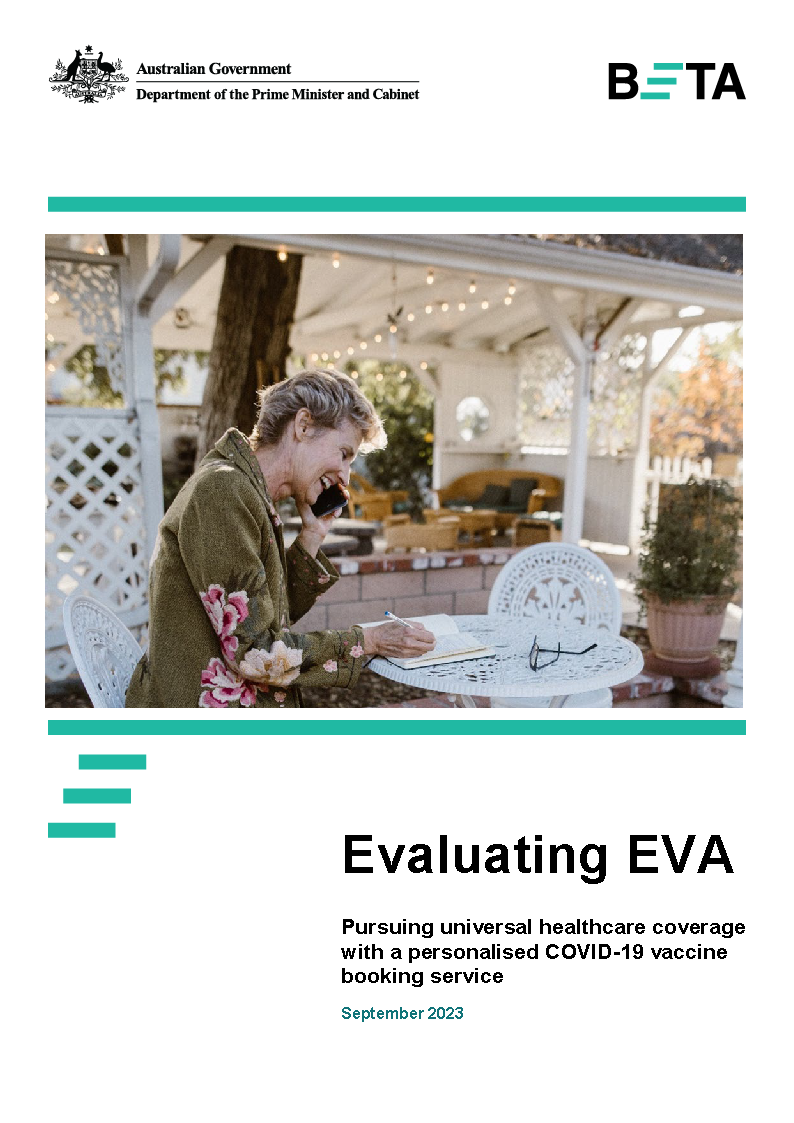To help Australians find and book a COVID-19 vaccine appointment, the Department of Health and Aged Care (Health) partnered with Healthdirect Australia to deliver the Easy Vaccine Access (EVA) call service from 28 March 2022 to 4 December 2023. Health approached BETA to evaluate the program.
BETA examined who accessed EVA and why, whether EVA was of help to its customers, and whether customers followed through with their vaccination. To answer these questions BETA conducted two surveys with EVA customers (1,841 customers completed Survey 1 and 624 customers completed Survey 2) and analysed data from EVA’s first year of operation (13,877 customers).
BETA found that EVA was a highly successful service, with 89% customer vaccination rates, and 93% of customers reporting that staff were helpful, professional and responsive to their needs, and that using EVA was an efficient use of their time. While EVA successfully reached some cohorts at risk of digital exclusion, such as those aged over 65 years, EVA could have been leveraged further with other cohorts at risk of digital exclusion, such as those living in areas of socioeconomic disadvantage.
This evaluation raises a number of implications for broader services. The right health service at the right time is not always easy for customers to find. Health services need to be accessible through multiple pathways, not just online to support equitable access. Call booking services like EVA are particularly useful to the elderly. Vulnerable cohorts who may benefit most from the service may require thoughtful targeting to ensure they utilise the service.
Key takeaway: While self-service digital solutions are increasingly prevalent, personalised supportive call services increase equity to healthcare, particularly for people experiencing digital exclusion.


